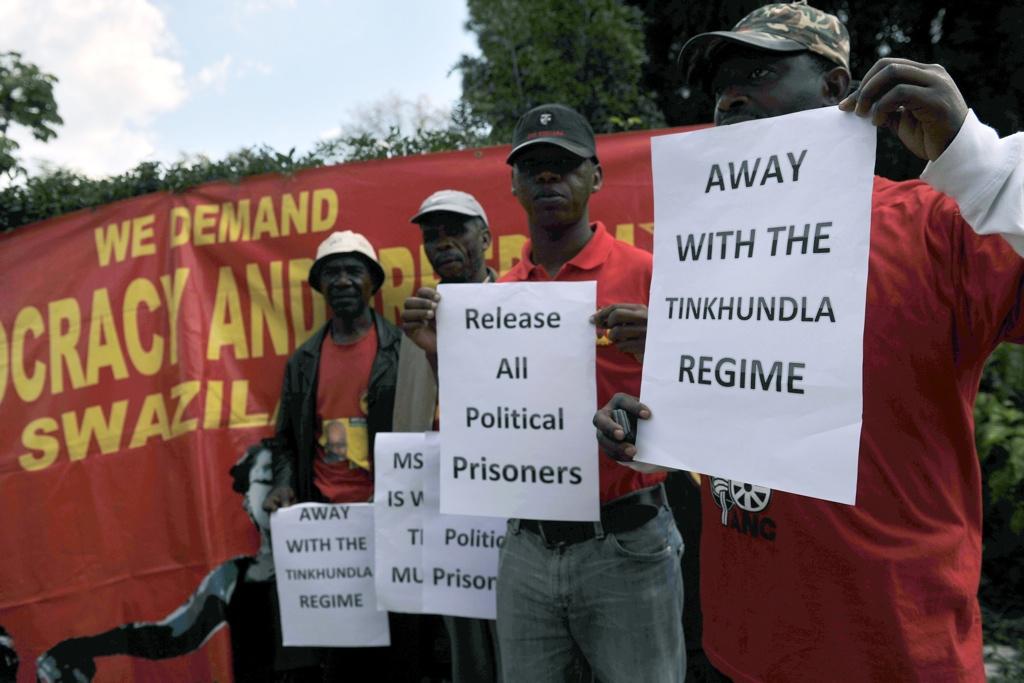Swaziland democracy protest crushed
People demonstrate outside the embassy of Swaziland in Pretoria, South Africa on April 12, 2011 to support planned protests against the rule of King Mswati III. Unrest has grown in Swaziland as the country sinks into a deepening fiscal crisis that last month sparked the largest demonstrations in years when thousands of civil servants marched through Mbabane to protest proposed pay cuts.
Crowds of pro-democracy protesters gathered in the main Swaziland city of Manzini calling for reform but were beaten back by police firing tear gas and water cannons.
Political parties have been banned for nearly 40 years in the tiny southern African kingdom where King Mswati III has ruled since 1986.
While most of his people are mired in poverty the king is among the world’s richest monarchs living an opulent lifestyle that is extended to his 14 wives.
Mswati has been criticised for continuing to preside over the annual Reed Dance, a traditional ritual in which topless young girls parade before him hoping to be chosen to join his harem.
Pro-democracy protests in the north of Africa have overthrown despots and sparked civil war so the Swazi authorities were taking no chances. Early on Tuesday morning activists were arrested at their homes, then roadblocks were erected to prevent busloads of protesters from reaching Manzini.
Those who did take to the streets were swiftly scattered with tear gas, water cannon and baton charges. Some reports suggested rubber bullets were also used.
The BBC reported police in riot gear marching down the street chanting, “You will get arrested if you dare.”
The United States condemned the heavy-handed repression but what Tuesday’s abortive protests really showed is another example of how the revolutions that have roiled North Africa are simply not happening south of the Sahara.
